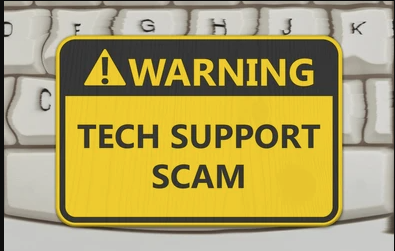
Cybersecurity in 2026 What’s Changed and What Still Gets Businesses in Trouble
Cybersecurity in 2026 looks very different from even a few years ago. Threats are faster, more targeted and more personal. At the same time many of the problems that put businesses at risk have not changed at all. Technology has evolved but leadership habits assumptions and gaps in accountability continue to create exposure.



The CEO’s Technology Forecast: What to Expect and Prepare for in 2026
No CEO can navigate the complexity of modern technology alone. The smartest leaders surround themselves with partners who combine technical depth with business perspective.
Look for advisors who understand that cybersecurity, compliance, and IT management are not separate concerns—they are interconnected parts of the same ecosystem. Your technology partner should act as an extension of your leadership team, helping you make confident, informed decisions that protect and propel your business.
If your current provider focuses only on fixing issues, you may be missing out on the strategic insights that proactive partners provide. As you plan for 2026, evaluate your partnerships and ensure they align with your long-term goals.

Before You Close the Books: The CEO’s Guide to Ending the Year Securely
The final weeks of the year bring reflection, planning, and preparation for a fresh start. While many CEOs focus on financials and forecasts, one area often overlooked in year-end reviews is technology. Yet your IT environment underpins every operational, financial, and strategic decision your business makes.
Year-end planning is not just about closing the books. It is about closing the gaps that could undermine your success in the year ahead. Here is how to wrap up your technology strategy with confidence, clarity, and zero loose ends.

Tech You Can Trust How Strategic Partnerships Drive Business Confidence and Growth
In today’s fast-moving digital landscape, technology is no longer just a business tool. It is the foundation of how organizations operate, communicate, and grow. But as technology becomes more complex, so does the challenge of managing it. Many business leaders find themselves overwhelmed, reacting to problems instead of confidently leading through them.
This is where trust comes in. The right technology partnership can transform how you think about your systems and your strategy. It can give you peace of mind, clarity in decision-making, and the confidence to scale your business without hesitation. At Oram Cybersecurity Advisors, we believe that technology should work with you, not against you. Our approach is simple. We mentor, guide, and empower leaders to make technology decisions that support long-term growth, not short-term fixes.

Why Every Growing Business Needs a Technology Mentor Not Just an IT Provider
In today’s fast-paced digital environment, technology drives every part of business growth. It affects how teams collaborate, how data is protected, and how leaders make confident decisions. Yet many companies still rely on a traditional IT provider who focuses on fixing issues rather than guiding strategy. The truth is that as your business grows, you need more than quick fixes. You need a technology mentor who understands your business goals and helps you use technology as a tool for progress, not just maintenance.

Think Your Business Is Too Small to Be Targeted? Hackers Are Betting On It
October is Cybersecurity Awareness Month, the perfect time to spotlight one of the most dangerous misconceptions in business today. Many small and mid-sized business owners believe they fly under the radar when it comes to cyberattacks. The thinking goes like this: “We are too small to be worth a hacker’s time.” Hackers know this belief is widespread, and they are counting on it.

Scam of the Week: Something's Phishy in This AppSheet Message
In this week’s scam, you receive an email from Google AppSheet, a service used to build web and mobile applications. The email is from a legitimate AppSheet email address with an alarming subject line about a trademark violation notice. The email contains a link that directs you to a login page, where you are prompted to enter your username and password. The notice seems urgent, and you may be tempted to log in to resolve the issue.

Scam of the Week: An Apple a Day Won't Keep This Phish Away
In this week’s scam, you receive an email for an Apple iCloud Calendar invitation. The invitation is sent from a genuine Apple email address and appears to be related to a purchase invoice. When you look at the invitation’s notes, you see an alarming message about a large charge to your PayPal account. The message includes a phone number and directs you to call to speak to a support team.

Scam of the Week: This Isn't Your Pal, It's a Phish
In this week’s scam, cybercriminals are using a clever trick that makes their phishing emails seem more real than ever. You receive an email from a real PayPal email address. The email contains an invoice for a large purchase you did not make, and a phone number for you to call if you want to dispute the charge. Even though the email comes from a real PayPal email address, this is actually a scam.

The Costliest Cybersecurity Myth CEOs Still Believe (and What It’s Really Costing You)
October is Cybersecurity Awareness Month, a reminder that protecting your business is about more than firewalls and passwords. The greatest danger many CEOs face today is not a hacker lurking in the shadows, but a stubborn myth that continues to put organizations at risk. The myth is this: cybersecurity is just an IT problem. In reality, it is a business growth problem, a profitability problem, and a reputation problem. Believing otherwise is one of the costliest mistakes a leader can make.

Scam of the Week: A Taxing Smishing Scam
Cybercriminals are targeting taxpayers in the state of California by sending text messages that look like they’re from the Franchise Tax Board (FTB), a state tax agency. The message claims your tax refund has been approved and instructs you to select a link to enter your payment information. There is a very strict deadline, and the instructions state that you will lose your tax refund if you do not enter your payment information quickly.

Scam of the Week: This Isn’t the Help Desk You're Looking For
In this week’s scam, you receive an unexpected call on Microsoft Teams, an app for voice calls, sending messages, and video chats. The call is from a user named “IT SUPPORT” or “Help Desk.” This user’s profile might even have a check mark emoji to make it look official. The caller claims there’s an urgent problem with your computer and that the IT department must fix it immediately.

Why Proactive Compliance Is a Smart Leadership Decision
Discover why a proactive compliance strategy is a smart leadership decision. Learn how regulatory compliance for business growth builds trust, reduces risk, and supports long-term success.

Scam of the Week: This Free Gift Has a High Cost
In this week’s scam, you get an email that looks like it’s from a trusted brand, such as Costco or AAA. The email promises a free gift if you fill out a short survey and pay a small shipping fee so that the gift can be delivered to you. The email may create a sense of urgency by claiming that only a few free gifts are left. All you have to do is click a link in the email, which takes you to a website with the survey.

Steps to create a compliance plan that grows with your company
Create a regulatory compliance plan that scales with your business. Discover actionable steps to stay secure, meet industry standards, and support long-term growth with expert strategies.

Scam of the Week: Spoiler Alert! This Job Isn’t Real
In this week’s scam, cybercriminals are targeting marketing professionals with a job opportunity that seems too good to be true. You receive an email that appears to be from Netflix’s HR department offering you a high-level marketing position. If you reply to this email, you will soon receive a second email that is sent from the “Netflix HR team.” This email contains a link for you to click so that you can schedule a job interview.

Scam of the Week: Who Sent This Package? You Don't Want to Know
You may be familiar with QR codes. They are square black and white barcodes that you can scan with your phone’s camera to be instantly directed to a website or mobile app. Unfortunately, cybercriminals can use QR codes to their advantage. This scam begins when you receive a package in the mail that you weren’t expecting. There’s no return address or sender information, but a QR code is printed on the box.

Scam of the Week: Don’t Fall For This Insta-Scam
In this week’s scam, cybercriminals are using a clever trick to target Instagram users. You receive an email that looks like an official security alert from Instagram that claims that someone tried to log in to your account. The email contains instructions to “Report this user” and provides a link for you to select. This situation seems urgent, and you may be tempted to act quickly.
